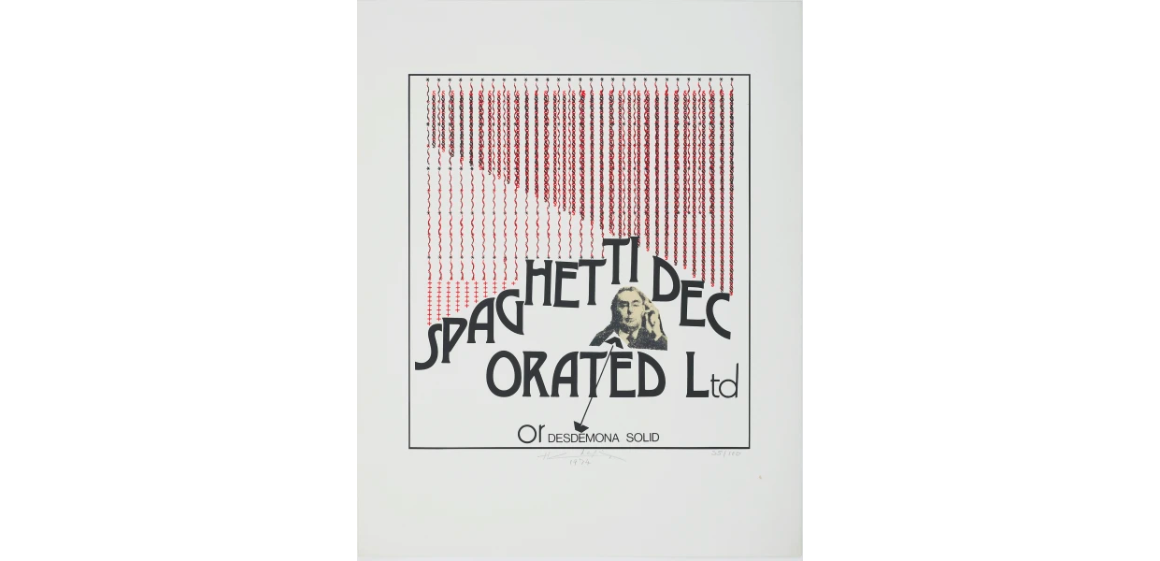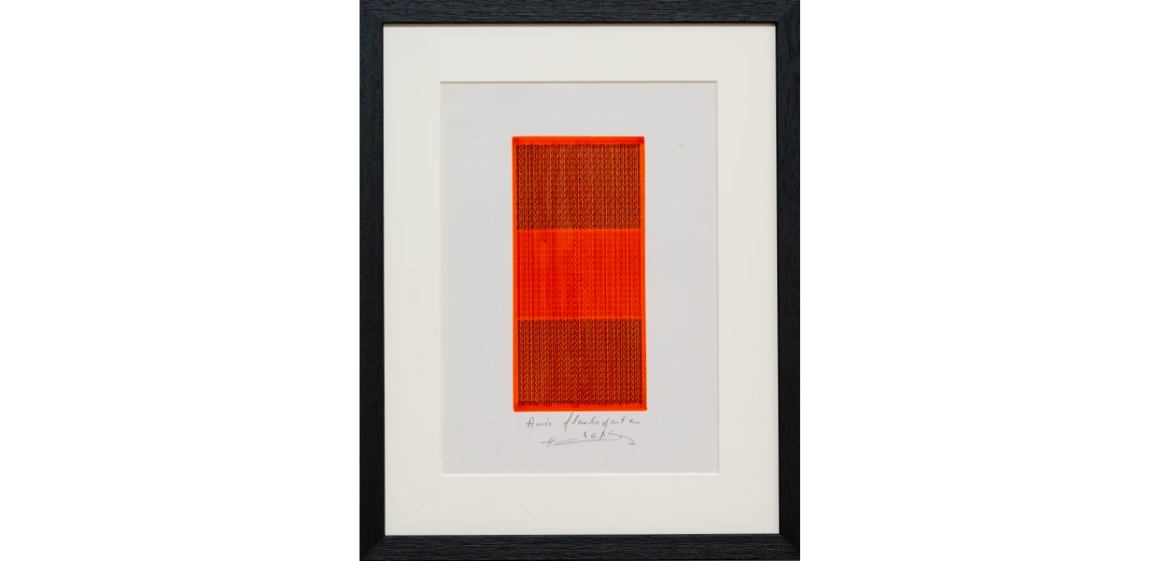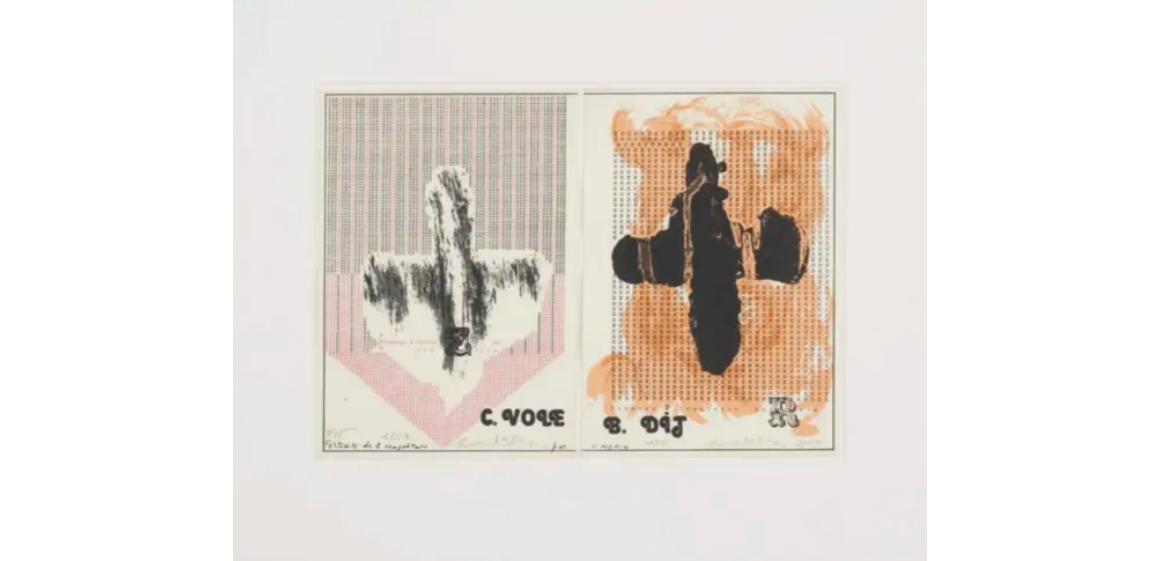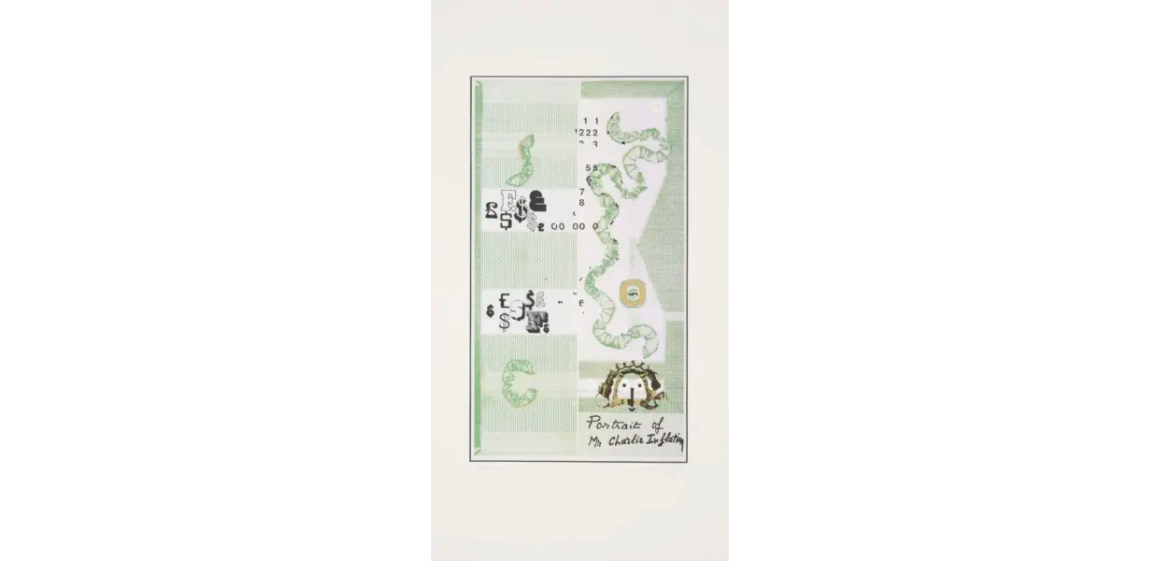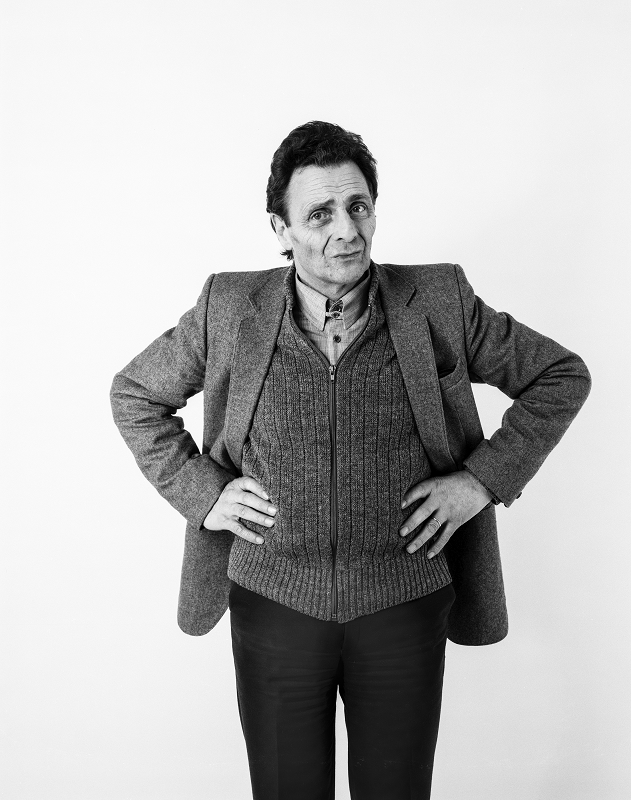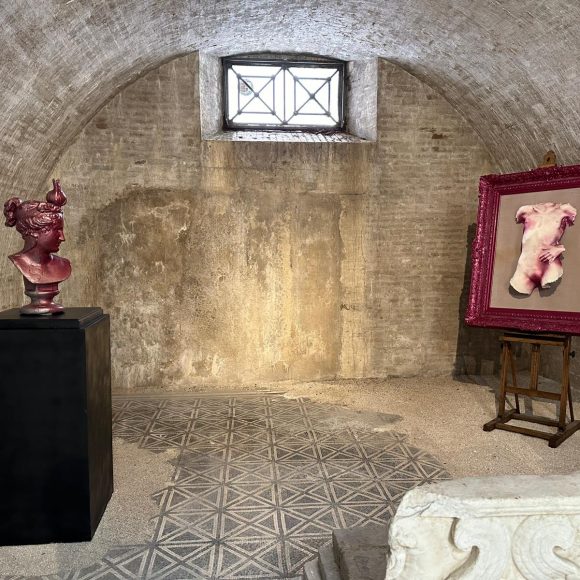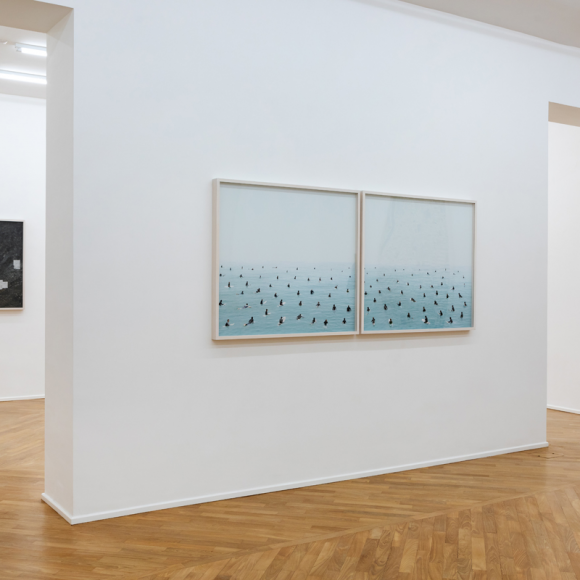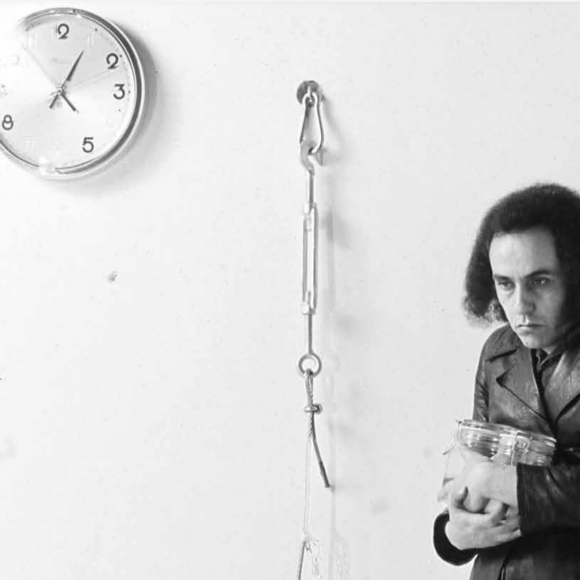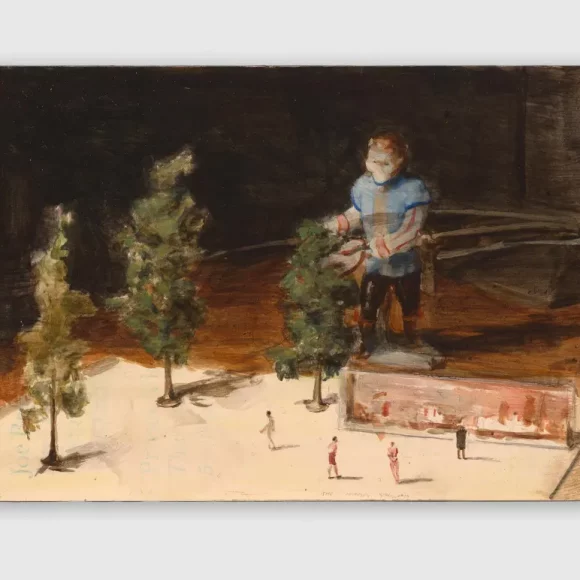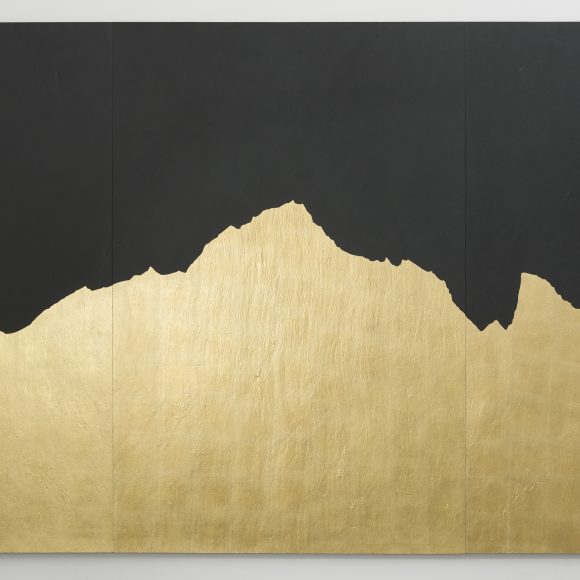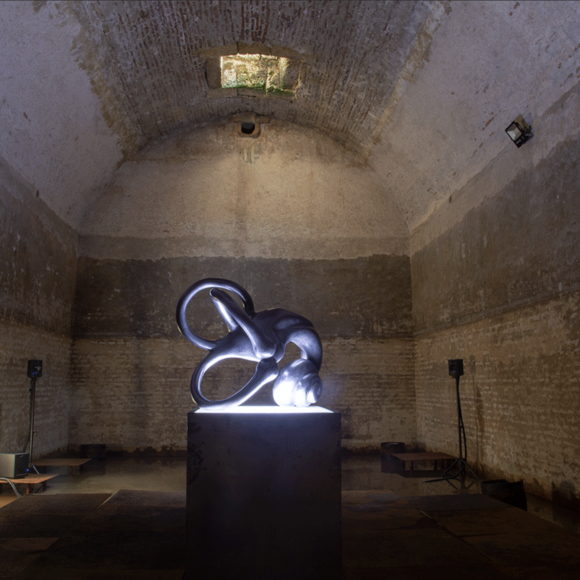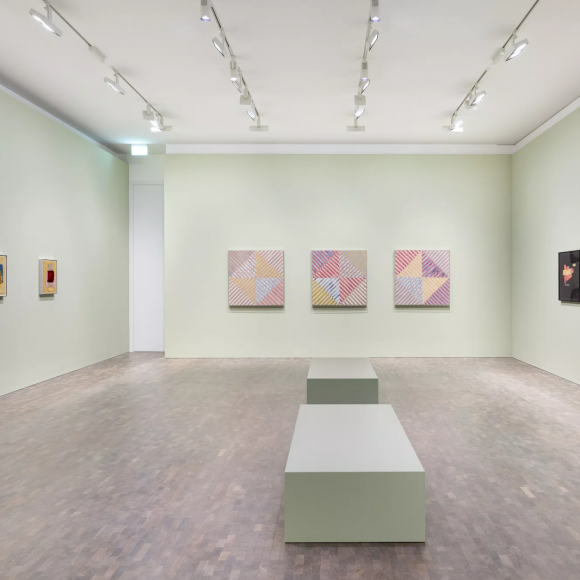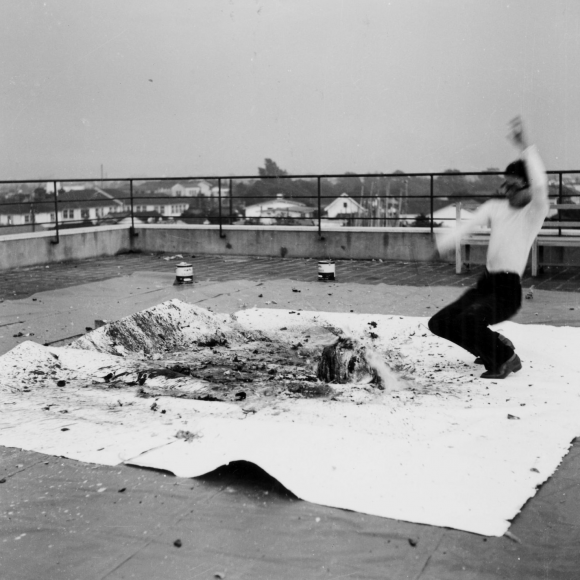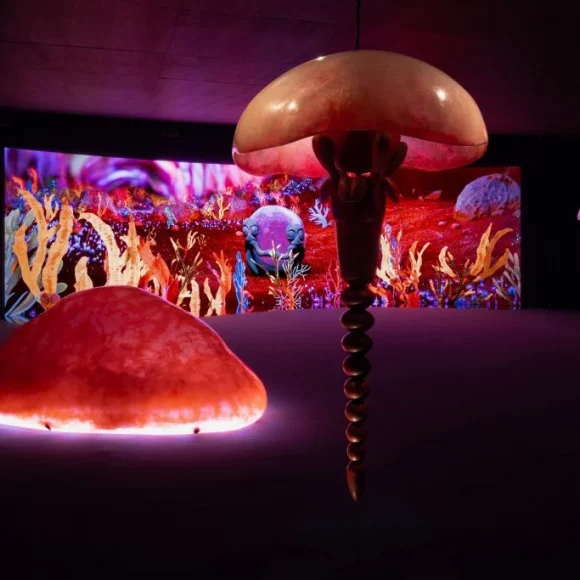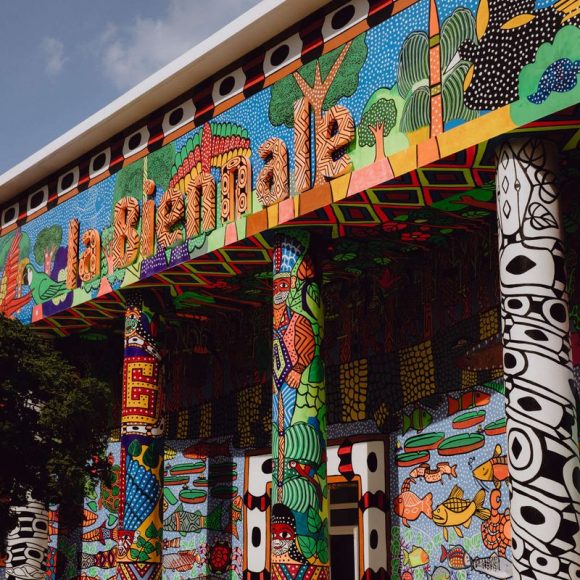HENRI CHOPIN
Henri Chopin (1922, France – 2008, UK) is best known for his unique works of concrete and sound poetry: poetry in which the meaning or effect is conveyed by visual or sonorous means. He is considered an artist, poet and curator but is mainly recognised by his typewriter poems, known as dactylopoèmes. His work challenges conventional notions of speech, language, music, sound and semantics. Chopin’s sound poems and dactylopoèmes dismantle preconceived verbal or symbolic meanings and focus instead on purely resonant or decorative qualities.
Chopin’s interest in concepts of value, meaning, order and disorder can be traced back to his experiences during the war. In 1940, when the German army advanced in France, his family fled from Paris to the south, where they were then captured and held in a forced labour camp in Olomouc, now a part of the Czech Republic. After escaping the camp at the age of twenty, the Germans soon recaptured Chopin, who sent him on a “death march” between eastern Prussia and the Lithuanian border.
In the 1950s, he became a pioneer in sound poetry, experimenting with his own breaths and cries. Chopin saw no limits to his practice, at one point swallowing a microphone to record the sounds and movements of his body. Using modern-age technology, Chopin sought to access the primality of communication, deconstruct communication as we know it, and experiment with communication beyond its symbolic meaning. This way, Chopin simultaneously merges the pure and visceral with the mechanical. He explores the unexplored spaces that lie behind language and communication. During the 1980s, the artist spent time in Naples collaborating on publications with Giuseppe Morra, founder of the Fondazione Morra, a leading contemporary art institution.
Selected Exhibitions
MoMA Museum of Modern Art, USA; Whitechapel Art Gallery, UK; Fondazione Morra, Italy; ICA Institute of Contemporary Art, UK; Dependance, Belgium; Fundação Serralves, Portugal; Summerhall, UK; M HKA, Belgium; Centre d’Art Contemporain, Switzerland; Galerie Natalie Seroussi, France; Galerie Georg Kargl, Austria; Museo Nacional Centro De Arte Reina Sofia, Spain; Quartz Studio, Italy; Espace d’Art Contemporain, France; Galleria Tiziana Di Caro, Italy; Centre Pompidou, France.
Selected Collections
Tate Modern, UK; V&A Victoria and Albert Museum, UK; MoMA Museum of Modern Art, USA; Centre Pompidou, France; MACBA, Spain; Beinecke Rare Book & Manuscript Library, USA; Fondazione Morra, Italy.
Selected Publications
La Crevette Amoureuse (The Shrimp in Love); Le Dernier Roman du Monde; Portrait des 9; The Cosmographical Lobster; Poésie Sonore Internationale; Les Riches Heures de l’Alphabet; Graphpoemesmachine.
Journal
Interested in Henri Chopin’s work?

